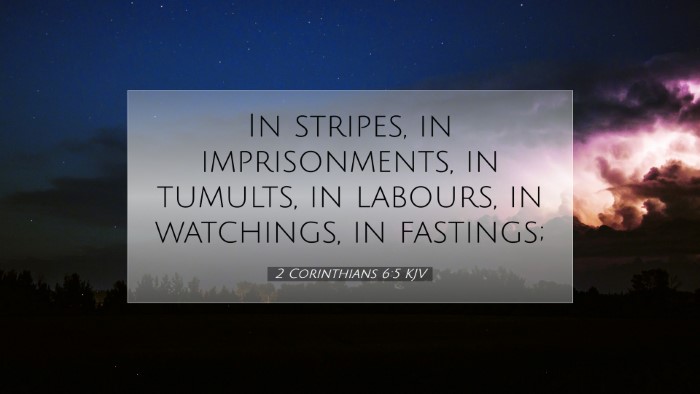Old Testament
Genesis Exodus Leviticus Numbers Deuteronomy Joshua Judges Ruth 1 Samuel 2 Samuel 1 Kings 2 Kings 1 Chronicles 2 Chronicles Ezra Nehemiah Esther Job Psalms Proverbs Ecclesiastes Song of Solomon Isaiah Jeremiah Lamentations Ezekiel Daniel Hosea Joel Amos Obadiah Jonah Micah Nahum Habakkuk Zephaniah Haggai Zechariah MalachiVerse
2 Corinthians 6:1 2 Corinthians 6:2 2 Corinthians 6:3 2 Corinthians 6:4 2 Corinthians 6:5 2 Corinthians 6:6 2 Corinthians 6:7 2 Corinthians 6:8 2 Corinthians 6:9 2 Corinthians 6:10 2 Corinthians 6:11 2 Corinthians 6:12 2 Corinthians 6:13 2 Corinthians 6:14 2 Corinthians 6:15 2 Corinthians 6:16 2 Corinthians 6:17 2 Corinthians 6:18

